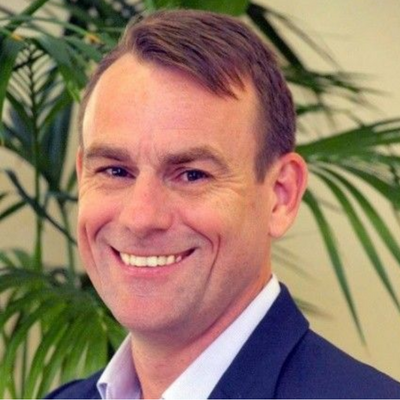07:00
Local Government Breakfast
08:15
Registration and welcome coffee
08:50
Opening remarks from the Chair
ENSURING SUSTAINABILITY FLOWS THROUGH ALL ASPECTS OF LOCAL GOVERNMENT
09:00
Creating opportunities to recover resources from waste and return it into the circular economy
- Looking into the lessons learned from the award winning in-house designed glass processing plant
- Overcoming previously inefficient waste practices to drive resources into the circular economy
- Developing processes to turn existing waste product into high quality products to support the local community
Peter Windley
Co-ordinator – Waste Operations
Shoalhaven City Council
09:30
PANEL DISCUSSION: How to build community support for sustainability measures through innovative channels
- Identifying which social media channels are the best for your local community to ensure your messages are seen and heard by the right people
- Deciding what information is and is not valuable and important to share
- What are some of the critical obstacles local councils face when trying to establish their social media presence?
- Does the NSW Government's social media policy for local councils provide an opportunity to develop good relationships between council staff and constituents, or does it not go far enough?
Panellists:
 Benjamin Bywater
Benjamin Bywater
Social Media Advisor
City of Parramatta
BIG DATA, AI AND THE FUTURE OF WASTE MANAGEMENT AND RECYCLING PROCESSES
11:00
Using AI and Machine Learning to detect waste contamination
- Spotlighting the benefits of developing a bespoke platform to share real-time information on job requests, live truck locations, waste collection routes and customer information
- Saving time and reducing costs through the implementation of technological advancements to increase viability of contamination
- Improving the customer experience through sharing accurate information and education on waste behaviour
 Brad Gray
Brad Gray
Manager – Sustainable Future
City of Canterbury Bankstown
11:50
Applying the power of AI to improve efficiencies in waste management and recycling
- Highlighting the importance of AI as an essential tool in developing a sustainable, long-term waste management strategy
- Examining the interrelationship between your human workforce and AI
- Discussing how Australian organisations are translating national and international examples of AI applications in the waste industry into their operations
 Stela Solar
Stela Solar
Director – National Artificial Intelligence Centre
CSIRO
STRATEGIES AND INITIATIVES TO ADDRESS THE LANDFILL CRISIS
13:30
Best practice strategies to reduce the use of landfill in disposing of waste products
- Discussing the critical issues, we need to address at a local level to reduce waste from ending up in landfill
- Examining the environmental costs of a landfill and how to develop better end-of-life management practices for putrescible waste
- Highlighting the impacts and costs to the local environment from greenhouse gas emissions from organic waste decomposition
 Kylie Douglas
Kylie Douglas
Senior Landfill Engineer
City of Greater Bendigo
14:00
Partner presentation
14:30
Afternoon tea
15:10
Examining the reduction targets on the National Waste Policy Action Targets and how LGAs are preparing for the 2030 deadline
- Re-examining the National Waste Policy Action Targets and ascertaining how well we are doing in preparation for the 2030 deadline
- Discussing how banning the export of waste plastic, paper, glass, and tyres provides LGAs with an opportunity to increase local businesses and generate new income
- Highlighting the importance of improving the way data is collected to enhance opportunities to increase investment and growth in waste management
15:40
PANEL DISCUSSION: Is the National Recycling and Waste Reduction Act 2020 doing enough to reduce waste and what else can LGAs do to help?
- Has the framework created by the National Recycling and Waste Reduction Act 2020 had the desired effect?
- What are the best next steps to manage the environmental and health impacts of waste products?
- How are LGAs operating under the established timetable on the export ban on waste products such as tyres, unprocessed waste plastic, and paper?
- As stewards of local community waste management, what can local councils do to increase their recycling and waste arrangements as outlined in the Act?
- How can local councils work with their communities to reduce waste generation in the home?
16:20
Closing remarks from the Chair
16:30
End of Resource and Recovery Summit

